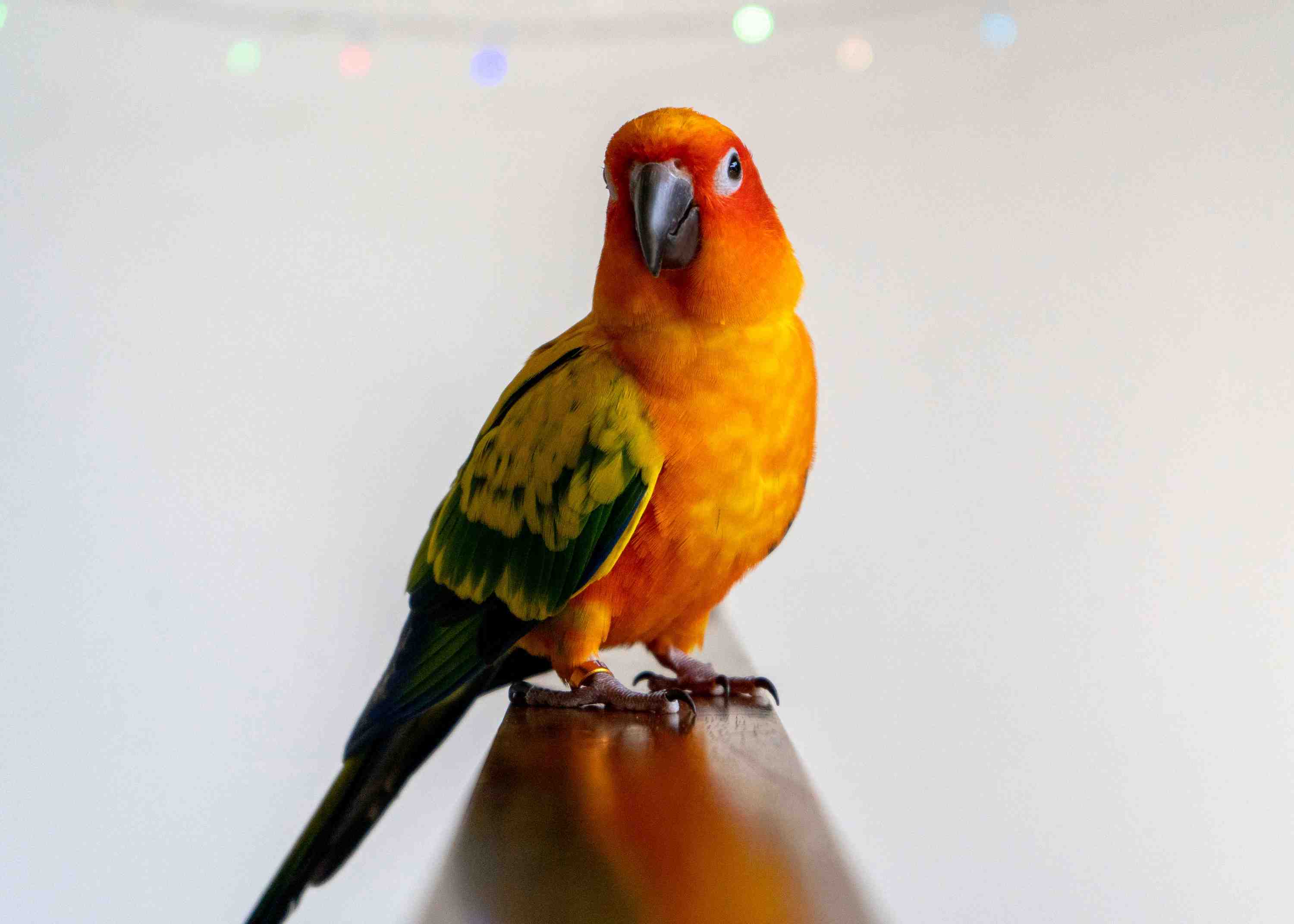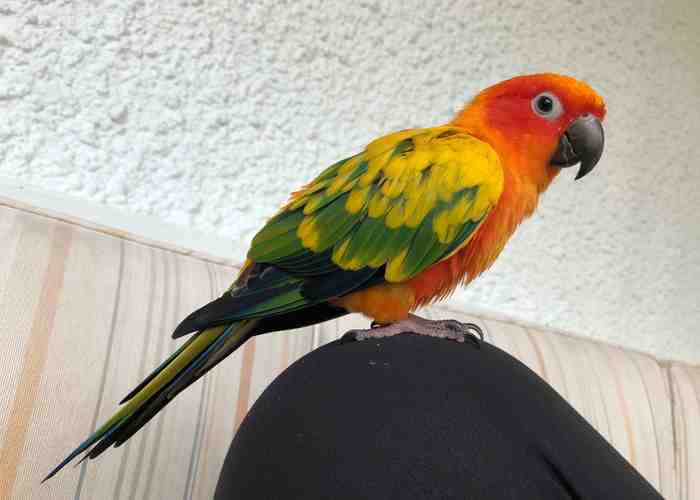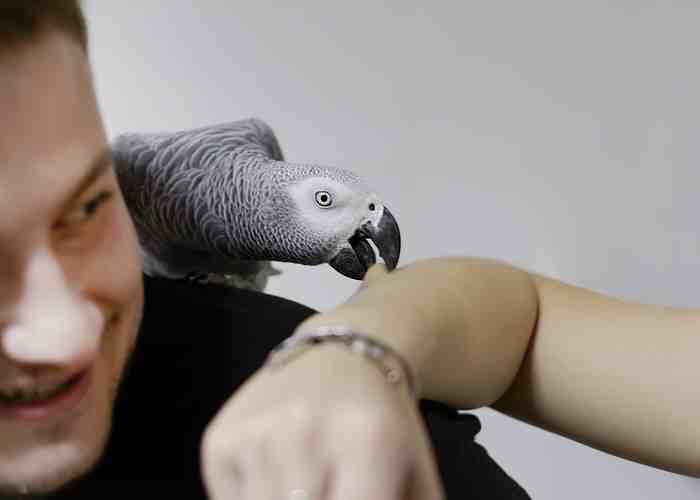Sun Conure Care
Everything you need to know in a NUTSHELL
Conures are special little birdies who require a lot of attention, love, and care. Sun conures are companion birds so if you are home a lot and have the time to spend with your bird then a sun conure can be your best friend! But if you need to commute to work or school 5 days a week for 8-12 hours shifts then this is a type of pet that won’t be a good fit. Sun conures are also a long-term commitment, they live 25-30 years on average. They are loud and like to scream! They are playful, fun, goofy and they poop a lot… everywhere! Sun conures are native to South America and are very tropical, beautiful birds. They reach their full coloration at approximately 18 months to 2 years old.
Taking care of a conure is not as simple as it might seem! They do require a lot of time, attention, and daily care! Sun conures are ideal pets for those who are patient, don’t mind loudness, are at home often, and are willing to dedicate their time, love, and an appropriate budget to taking care of them.
They Require A Lot Of Attention And Love

Sun conures are very intelligent and like to spend time with their flock aka YOU. Sun conures are very social, affectionate, and smart birds. They do require daily interaction with their social group or else they’ll become bored and can develop behavioral problems. You want to give them plenty of freedom each day with quality time outside of their aviary so they can exercise, be engaged, and have fun! Time out of the cage isn’t always about the amount of time they spend out of the cage but about the quality of time, they spend with you. You want to have as many positive interactions as possible rather than negative interactions (like your bird getting in trouble). You want to dedicate time to bonding with your bird, training, and developing a good relationship that is going to last 20-30 years! Suns love to cuddle with their special people and check out everything they do. Teach them some fun tricks to spend quality bonding time together. It’s very important to gain your sun's trust during your bonding times. Talk to your conure, dance with them, sing with them, and be gentle and calm with them.
A Good-Sized Condo

By this, I mean cage or aviary. I don’t like the word “cage” so I prefer to call them aviaries but we like to refer to Mango’s as his condo. According to Google and various online sources, the minimum cage requirement size is 24" x 24" x 30" but the bigger the better. They are very acrobatic, love to climb, adventure, and spread those wings so if you can go bigger your bird will be more comfortable and thank you for it! If you give a sun conure the room they will utilize it because they are so playful and active. Bar spacing is also IMPORTANT! Make sure the bar spacing is close together and won’t allow them to get their head stuck between the bars.
Foraging And Engaging Toys, Toys, Toys! (and perches)

Toys are important for our birds, they need lots of them! It keeps them busy, wears down the beak, and provides mental stimulation. They are natural destroyers, think of them as mini dinosaurs. If there is a toy your bird destroys that means they LOVE IT! A busy bird is a happy bird. The toys also need to be rotated regularly to avoid boredom. Foraging toys should be available to them to mimic their natural food foraging behavior in the wild. In addition to offering a variety of toys, perches are also important. They need a variety of perches to ensure their feet get exercised and don't get lazy. You can find different types and sizes and styles - for our Mango I choose small and medium-sized perches. I like the natural wood or branch perches for him as well as sanded perches to help file his nails down. Try to avoid too many dowel perches because they can cause issues for their feet. A variety of perches helps keep their feet strong and healthy. Position the perches such that your conure's tail feathers will not rub against the cage bars when they sit on the perches and put one perch close to their food and water dishes.
You may want to avoid toys with any loose strings or thin ropes and cuddle huts. If you choose rope perches ensure to keep an eye on any loose strings you see in rope perches and cut them or remove the rope to avoid them getting caught up in it. Cuddle huts have been deemed not safe in case a parrot ingests any of the material but it can also make them hormonally aggressive. Cuddle huts have been known to put birds “in the mood” and can also be a nesting spot.
You can check out safe toys for birds of all sizes here
A Healthy Diet

I cannot stress this enough. A healthy diet for your conure is essential! About 30% of behavioral issues are related to diet alone! A good diet plays a big role in your bird's life, health, behavior, and relationship with you. Avoid SEED DIETS, seeds and nuts should be used as treats for training. Seeds and nuts should be acknowledged as rewards for your bird. Check out the diagram below from BirdTricks on proper treat sizes. Stay away from a seed diet, these are unhealthy and fattening, this type of diet can have very little nutritional value so this could lead to a shorter less vibrant life.
What should their diet consist of? Fresh foods including vegetables, grains, legumes, beans, and good quality pellets are important for their everyday diet. They also need their water changed every day sometimes a few times a day. Fruit can be offered as well of course but 3-4 times a week is best since it can be high in sugar. Mango gets fresh chop from the seasonal feeding system by BirdTricks and more chop with good quality cold-pressed pellets in the evening. Sun conures have busy beaks and what we put in them makes all the difference!
Make sure you avoid feeding any foods that are toxic or dangerous for conures like avocado, apple seeds, salty foods, etc. Be aware of what foods are toxic and unsafe for your parrot.
Splish, Splash An Everyday Bath

Showering or bathing should be done every day! There are so many ways for your bird to shower. You can use a spray bottle to mist your bird or fill a water dish, invite them in the shower, or even let them play in the sink. If your bird doesn’t like bathing don’t fret anything can be trained! Usually, suns love baths so make sure to also include another water dish in their condo for bathing, preferably one that is large enough for them to step into.
Spread Those Wings And Fly

As with all birds, proper exercise is imperative to good health. Sun conures are very active, playful, and energy so they need adequate space to fly, explore, and play. Giving them a larger condo will help them to get that energy out by climbing, playing or destroying toys, swinging, and so on. But even the best cage is still a cage and they benefit greatly from time out of their condo to fly around and collect those frequent flyer rewards. If you are taking your conure outside you should put a birdie harness on them unless you are a pro with flight training. Some people have been able to flight train their small birds but proceed with caution and make sure to consult with professionals about flying your conure outdoors. Anyhow, letting them fly around the house indoors is clawsome! Give your conure at least a couple of hours of supervised time out of the aviary every day so they can exercise those wings and spend time with you. Also, when flying around indoors be cautious of household dangers like wires, cables, fans, and so on. Sun conures love being outside of their aviary for playtime. They are the type of bird that doesn’t enjoy being left alone.
Before you let your sun out of their cage: - Make sure all windows and doors are closed. - Confine other pets that might injure your conure.
Condo Care

Their condos require daily TLC too! We already talked about rotating toys, offering different perches, and changing their food plus checking if they need their water changed a few times a day but they also need a clean space. On the bottom of their condo, there will be a tray for all their number ones and number twos! This cage lining needs to be changed every day! Their toys and perches also need to be cleaned up daily. Additionally, you will want to clean their condo regularly. I take everything out, clean the aviary, and rotate toys weekly.
Sleep Time

Birds need their beauty sleep or they can be cranky! You want to get your bird in a routine and ensure they have 12 hours of dark, uninterrupted sleep time. Some like to do this sunset to sunrise but it also depends on your schedule, 7 am-7 pm or 8 am-8 pm is fine too! If you can put your bird's condo in a room where you can close the blinds and turn off the lights to give them complete darkness and quiet this would be ideal! If this is not something you can offer your bird you will need to get a cage cover to use at bedtime.
Understand Molting Periods

Molting happens to a bird when its feathers are naturally shed and new ones replace the old ones. Molting is necessary to any bird's (including conures') growth. Baths are important because they can also help with any itchiness they might have during molting periods. You will notice they preen themselves throughout the day more often. You can help them by giving scritches in those harder-to-reach spots or simply help them out around their head and neck.

We want our cute birdies to thrive and so we need to be aware of everyday household dangers to make sure we avoid them. Your conure's cage should be in a room that is not in the direct path of harmful fumes or direct sunlight. Harmful fumes include kitchen fumes like when you are cooking, and many toxic fumes including perfumes, aerosols, and fumes from cleaning products and non-stick cookware. Conures are most comfortable in rooms that are 70 to 80 °F (21 to 27 °C). The room should also be free of drafts.
So, in a big nutshell, those are the main areas of focus when taking care of a conure. Even though they are little they are big responsibilities.


.png)

